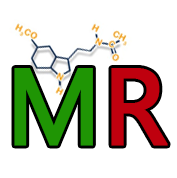Melatonin, macrophages and microbiota: Interactions
Abstract
This commentary summarizes and highlights the recent research reports of the group headed by Professor Wenkai Ren. Their research has been focused in two important investigative areas, namely, the role of melatonin in the regulation of macrophage polarization and the functional implications of melatonin for the gastrointestinal microbiota. Both these subjects are of high interest to melatonin biologists since both have significant implications in clinical and veterinary medicine.
References
2. Xia Y, Chen S, Zeng S, Zhao Y, Zhu C, Deng B, Zhu G, Yin Y, Wang W, Hardeland R, Ren W. (2019) Melatonin in macrophage biology: Current understanding and future perspectives. J. Pineal Res. 66(2): e12547.
3. Xia Y, Zhan Q, Ye Y, Wu X, He F, Peng Y, Yi Y, Ren W. (2022) Melatonergic signaling instructs transcriptional inhibition of IFNGR2 to lessen IL-1β-dependent inflammation. Clin. Transl. Med. 12(2): e716.
4. Ren W, Wang P, Yan J, Liu G, Zeng B, Hussain T, Peng C, Yin J, Li T, Wei H, Zhu G, Reiter RJ, Tan B, Yin Y (2018). Melatonin alleviates weanling stress in mice: Involvement of intestinal microbiota. J. Pineal Res. 64 (2): e12488.
5. Yin J, Li Y, Han H, Chen S, Gao J, Liu G, Wu X, Deng J, Yu Q, Huang X, Fang R, Li T, Reiter RJ, Zhang D, Zhu C, Zhu G, Ren W, Yin Y (2021). Melatonin reprogramming of gut microbiota improves lipid dysmetabolism in high-fat diet-fed mice. J. Pineal Res. 65(4): e12524.
6. He F, Liu Y, Li P, Wu W, Xia Y, Zhang D, Li N, Peng Y, Zhu G, Hardeland R, Reiter RJ, Ren W. (2022) Melatonin inhibits Gram-negative pathogens by targeting citrate synthase. SCIENCE CHINA Life Sci. 65: dou.org/10.1007/s11427-021-2032-9.
7. Liu Y, Jia Y, Yang K, Tong Z, Shi J, Li R, Xiao X, Ren W, Hardeland R, Reiter RJ, Wang Z. (2020) Melatonin overcomes MCR-mediated colistin resistance in Gram-negative pathogens. Theranostics 10 (23):10697-10711.


This work is licensed under a Creative Commons Attribution 4.0 International License.
For all articles published in Melatonin Res., copyright is retained by the authors. Articles are licensed under an open access Creative Commons CC BY 4.0 license, meaning that anyone may download and read the paper for free. In addition, the article may be reused and quoted provided that the original published version is cited. These conditions allow for maximum use and exposure of the work, while ensuring that the authors receive proper credit.
In exceptional circumstances articles may be licensed differently. If you have specific condition (such as one linked to funding) that does not allow this license, please mention this to the editorial office of the journal at submission. Exceptions will be granted at the discretion of the publisher.


